- Home
- Kelley Armstrong
Portents Page 5
Portents Read online
Page 5
The black cat. Hannah’s matagot kitten. A middle-aged cat now, slinking arrogantly across the street without even bothering to look, as if no car would dare mow it down.
He followed the beast, waiting for it to get to a secluded spot. In Cainsville, though, there weren’t any secluded spots. When he’d been young, he’d felt as if he was being merely observed, someone always watching over him, keeping him safe, and he’d loved that. Now it felt as if he was being spied on, judgmental eyes tracking his every move. As he moved, he’d sometimes see someone peek out from a house, but they’d only smile and nod. He might be thirteen, but here he was still a child, innocently out playing hide-and-seek or tag with his friends. He could cut through yards and steal behind garages and no one would ever come out to warn him off as they would in the city.
Eventually, the cat stopped prowling, and did so in one of the rare secluded spots—the yard of an empty house. Cainsville had a few of them, not abandoned but empty. This one was surrounded by a solid fence for privacy, and once Bobby was in that yard, he was hidden. That is where the beast stopped to clean itself, proving that whatever airs cats might put on, they were very stupid beasts.
As he crept up behind the cat, his hands flexed at his sides. He had to grab it just right or it would yowl. Pounce and snatch. That was the trick. Scoop it up by the neck, away from scrabbling claws and then squeeze. It was simpler than one might think, particularly when the beast was so preoccupied that it didn’t turn even when his foot accidentally scraped a paving stone.
He got as close as he dared. Then he sprang.
The cat whipped around and leaped at him. The shock of seeing that stopped him for a split second, and before he could recover, the cat was on him, scratching and biting, and it was like Rose and Hannah all over again, fighting like wild animals, only this animal had razor claws and fangs, and when he finally threw the beast off, blood dripped from his arms and his face.
He ran after the cat, but it bounded away, leaped onto the fence and turned to hiss at him, almost half-heartedly, as if he wasn’t worth the effort. He glowered at the beast, then stomped toward the gate. When he swung it open, someone was standing there. Three someones. Mrs. Yates and two of the other elders.
“What have you done, Bobby,” Mrs. Yates said, her voice low.
“Me?” He lifted his blood-streaked hands. “Ask that damned cat. I was trying to rescue it for Hannah.”
“No,” she said. “That isn’t what you were doing at all.”
“I don’t know what you mean. If Hannah told you—”
“Hannah told us nothing. She doesn’t need to. We know.”
He looked at her, and then at the other two elders, and he knew, too. Knew the truth he hadn’t dared admit. The girls weren’t tattling on him. It was the elders, burrowing into his head, reading all his most wicked thoughts, seeing all his most wicked deeds.
He managed to pull himself up straight and say, “You’re all crazy.” Then he pushed past them and raced back to his mother.
It was the old story. The one where he’d first heard about the screams of dragons. It was coming true. All of it. First the dragons. Then his stomach, twisting and hurting so much these days that he couldn’t eat—just like the king couldn’t eat because his food went missing. Now the people who could hear everything. The elders and Rose. They knew what he was doing even when he didn’t speak a word. He could not escape them, again like the king in the story.
That’s why he used to dream of castles. He wasn’t a changeling child. He was a king—or he had been—and the old story was replaying itself, consuming him and his life.
After that last trip to Cainsville, the elders were no longer content with the occasional call to check on him. Twice they’d shown up at his house. His house. Mrs. Yates had taken him aside and tried to talk to him, prodding him hard now with her questions, telling him she was worried, so worried. If only he’d talk to them, they might be able to help.
Liar.
They didn’t care about him. They came as a warning. Letting him know they were in his head, watching and judging. Letting him know they were going to win. He was still a little boy. He would be consumed by them—the dragons—as Rose’s dreams predicted. It all made sense now, or it did, the more he thought about it, obsessed on it, dreamed of it. It was like a puzzle where the pieces don’t seem to fit, but you just had to be smart and twist them around until they did.
He went to the library and dug until he found the story in an old book of legends. He’d vaguely recalled that the king had stopped his enemies by feeding them something. According to the book, he’d fed them food made from very special insects. Bobby read that, and he went home to sleep on it, and when he woke, he knew exactly what he had to do.
It was May Day again. This year, the Gnat had decided not to come. She’d been at a friend’s place and called to say she was spending the night and skipping the trip. He’d given the news to his parents when they returned from a bridge party.
The next morning, his mother started fussing, worrying that the Gnat would change her mind as soon as they’d left for Cainsville.
“She’d call before that,” his father said. “She’s a big girl.”
“I can phone and ask if you want,” Bobby said.
“Would you? That’s sweet.” She patted his back as he walked past. “Whose house did you say she was at again?”
He answered from the next room, his reply garbled, but his mother only said, “Oh, that’s right. Now, does anyone know where we left the tanning lotion? I want to get started early this year. Wait, I think Natalie had it . . .”
A few minutes later he found her in his sister’s room. “She’s not there. I remember her saying something about going to the roller rink.”
His mother sighed. “I wish she wouldn’t. Those places seem so unhealthy for girls, with the lights all off and so many boys . . .”
“I can talk to her about it tomorrow if you’re worried.”
Another pat as she zoomed past, tanning lotion in hand. “Thank you, dear. You’re a good brother, even if she doesn’t always appreciate you. Did you pack that pie you made?”
“Pie?” His father appeared in the doorway. “Bobby made pie? Apple, I hope.”
“Shepherd’s pie,” his mother said. “He made it last night while we were out. Didn’t you notice the mess when we got home?” She glanced over. “So you did find hamburger meat in the freezer.”
“One last package, like I said.”
“I was so certain we’d run out.” She headed for the hall. “All right. Time to go.”
The waitresses at the new diner let him warm his casserole in the oven. He was sitting in the back, watching the timer, when the door swung open and Rose burst in, Hannah at her heels.
“That smells good,” Hannah said. “Is it true? You made pie?”
“Shepherd’s pie. I hope you’re not still mad at me. I’m . . .” He lowered his voice as he walked toward her. “Sorry about the last time. That’s why I made the pie. For you and Rose. To say I’m sorry. For the elders, too. I don’t want anyone to be mad at me.” He gazed into her eyes. “I hope you’ll have some.”
She seemed nervous, but forced a smile. “Sure, Bobby. And I’m sorry, if I overreacted. You scared me and—”
“What have you done?”
It was Rose. She hadn’t spoken since she’d entered. He hadn’t even glanced her way, seeing only Hannah. Now he looked over to see her standing in front of the oven, staring at it. When she turned to him, her face was even paler than usual, her blue eyes bulging.
“What have you done, Bobby?” she whispered.
“Done? What—”
“I had a dream,” she said. “Last night.”
“More dragons,” he scoffed. “Dreams of me and screaming dragons.”
“No.” Her horrified gaze never left his. “It wasn’t dragons I heard screaming.”
“Whatever.” He turned away. “You’re crazy. Your whole family is
crazy.”
“Where’s your sister, Bobby?”
He shrugged, his back still to Rose. “She stayed home.”
“Where is your sister?” She said each word slowly, carefully, and he was about to reply when the door opened again. He turned as Mrs. Yates and two of the elders walked in. They seemed concerned. Only that. Then they stopped, mid-stride. They inhaled, nostrils flaring, and when they turned to him again, horror filled their eyes, the same horror that crackled from Rose’s wide-eyed stare.
“Bobby,” Mrs. Yates said. “What have you done?”
He wheeled and raced out the back door.
Before he knew it, he found himself back where he’d been the last time, in the backyard of the empty house. He looked around wildly, saw a break in the lattice work under the deck, and crawled through, wood snapping as he pushed his way in, splinters digging in, blood welling up.
When he got inside, he turned around and huddled there, hugging knees that stank of dirt, his arms striped with blood.
Blood.
He remembered the blood.
He shot forward, gagging, stomach clenching, head pounding, the images slamming against his skull. He kept gagging until he threw up. Then he sat there, hugging his legs again as the tears rolled down his face.
Gran was right.
I am a monster.
And I don’t even know how it happened.
“Bobby?”
It was Mrs. Yates. He scuttled backward, but she walked straight to the hole and bent to peer in. She smiled, but it was such a terribly sad smile that he wished she’d scowl instead, scowl and rage and call him the monster he was.
“I am so sorry, Bobby,” she said. “I don’t know . . .” She inhaled. “I won’t make excuses. We could tell things weren’t . . . We had no idea how bad . . .” Another inhalation, breath whistling. “I’m so, so sorry. I wish I’d known. I wish I could have helped.”
He said nothing, just kept clutching his knees.
“I can’t stop what’s going to happen now, Bobby. I wish I could. I would give anything to fix this. But I can’t. I can only make it easier.”
He started to shake, holding his legs so tight his arms hurt.
“I read those newspaper articles,” she said. “About your grandmother. What she said. Your dreams. We should have talked about that. Perhaps if we’d talked . . .” She shook her head, then peered in at him. “You dreamed of golden castles, didn’t you? Castles and meadows and streams.”
“And dragons,” he whispered.
She went still. Completely, unnaturally still. “Dragons?”
He nodded. “I dream of dragons screaming. And then I wasn’t dreaming and they still screamed.”
“You should have told—” She cut herself short, chin dipping. “Let’s not talk about the dragons. You won’t hear them anymore. I promise. But the castles. You liked the castles?”
He nodded.
“Would you like to see them?”
“They’re gone. They went away.”
She inched a little closer to the gap in the lattice. “I can bring them back. Back as bright as they ever were. Castles and meadows, cool breezes and warm sunshine. Laughter and play, music and dancing. Is that what you remember?”
He nodded.
“Would you like to go there?”
“Yes.”
She ducked her head and crawled under with him. In one hand, she held a bottle. She pulled out the stopper and held the bottle out to him. The liquid inside seemed to glow, and when he looked up at her, she seemed to glow, too, the wrinkles on her face smoothing.
“Do you trust me, Bobby?”
He nodded.
“Then drink that. Drink it, and you’ll see the castles again. You’ll go there, and you won’t ever need to come back.”
He took the bottle, and he drank it all in one gulp. As soon as he did, the dragons stopped screaming, and he saw Mrs. Yates, glowing, every inch of her glowing, like sunlight trapped under her skin, her eyes filling with it, drawing him in as she reached out to hug him. He fell into her arms, and the glow consumed everything, the world turned to gold, and when he opened his eyes, he was sitting on sun-warmed grass, staring up at a castle, and a girl laughed behind him and said, “Come and play, Bobby.” He turned, and she looked like Hannah but not quite, and she smiled at him, the way Hannah used to smile at him. He pushed to his feet and raced after her as she ran off, laughing.
And that was where he stayed, just as Mrs. Yates promised. Endless days in a world of gold and sunshine, days that ran together and had no end. Every now and then he would fall asleep in a lush meadow or in a chamber in the beautiful castle, and when he did, his dreams were terrible nightmares, where he was bound to a hospital bed, screaming about dragons. But the nights never lasted long, and soon he was back in his world of castles and meadows, running, chasing, playing, dancing until he forgot what the screams of dragons sounded like, forgot he’d ever heard them and forgot everything else—his grandmother, his sister, his parents, the girls, Mrs. Yates—all of it gone, wisps of a dream that faded into nothing, leaving him exactly where he’d always wanted to be.
Devil May Care
As a wine glass whipped past Patrick’s head, he reflected that he might enjoy breakups more than he should. It wasn’t that he took pleasure in inflicting pain on a woman he’d come to know. No, what he appreciated was the efficiency of it. No protracted dance of relationship disintegration. Just a sharp, clean break. One minute he was enjoying a post-coital glass of wine with Tracey, and the next he was being forcibly ejected, amidst curses and broken glass, and there was no chance she’d grieve the loss of him. No chance she’d try to win him back and suffer the ego blow of his refusal. That was the beauty of his breakup ploy, one that had served him well for over a hundred years. Tell a woman that your wife is pregnant—when she never even knew you were married—and you guarantee a swift parting.
Of course, he wasn’t married. That would be wrong. And very inconvenient, he thought, as he jogged down the apartment stairwell. His was not a life conducive to long-term relationships. He had too many secrets, too many facets of himself he couldn’t share with a lover. Also, it would bore him to tears. Boinne-fala had their place. Rather like those plastic puzzle boxes that seemed all the rage, the ones with the colored squares. Fascinating for a time, until you figured them out and then . . . well, then the challenge was gone, the shine worn off.
“You look pleased with yourself today, bogan,” a voice said as he swung through the building’s back door. “Causing trouble, I presume?”
He glanced up sharply to see the face of a stranger—an old woman with long graying hair drawn back in a braid. Just because he didn’t recognize her didn’t necessarily mean they weren’t acquainted. Fae affected glamours to pass for human, and while their disguises were based on their true selves, immutable in features and form, they could age it anywhere from eighteen to a hundred-and-two. He peered into the old woman’s eyes.
“No, bogan,” she said. “You do not know me.”
Bogan. One of many names for his kind: Bogan, bòcan, hobgoblin, puck . . . She was another kind of fae—he could see the glimmering fae light behind her glamour. He tried to focus on that light enough to see her properly and determine her type.
“The polite way to do this is simply to ask,” she said.
He snorted. “You’ve been among the boinne-fala too long.”
“Boinne-fala?” She arched her brows. “Ah, that’s right. You’re Tylwyth Teg. Welsh. Boinne-fala meaning a drop of blood. An insult for humans who are no more than a drop of fae. You Tylwyth Teg still think yourselves above mere mortals. You refuse to admit exactly how far we have fallen.”
“One only falls if one allows oneself to stumble. Now, if you’ll excuse me, I have—”
“—things to do. Many, many things to do, which ultimately amount to nothing except pleasing yourself.”
“Which is all that matters.” He gave a mock bow. “Now, my lady,
I take my leave.”
“Aren’t you even going to ask what I am?”
“Why bother? A true fae wouldn’t tell me. It quite spoils the game.”
“I don’t play games.”
“Then you aren’t a true fae.” He headed for the sidewalk. She seemed to stay where she was, but a moment later, her voice sounded at his ear.
“There is one type that does not dabble in petty bargains and mischiefs. One that deals in truth.”
“Mmm, sorry. Not ringing a bell.”
“Liar,” she said. “You know all the types, Patrick of Cainsville, the legendary scholar with the legendary library.”
“Scholar?” He snorted. “I’m a writer. A dime-store novelist. Your sources flatter me, but they’re wildly mistaken.”
“My sources are never mistaken. As you well know because you’ve figured out that I must be a korrigan.”
“Never heard of it.”
Her laughter rippled along the silent street, the laughter of a much younger woman.
“A korrigan has the power to see the future. But you know that.”
“Fortune telling? Excellent. Perhaps you can use your scrying ball and tell me when I’ll rid myself of your company.”
“In about two minutes. First, though, make a mental note of this address. You’ll need it.” She rattled off an apartment in the city and then said, “Now, I have one minute left. One minute to warn that your future is about to take a most unwelcome turn. A fate that is, for a bogan, worse than death.”
“Boredom?”
She gave him a pat-on-the-head sort of smile. “No, my dear Patrick. Worse still. You’re about to find yourself in a position of responsibility.”
He laughed. “I’ve managed to avoid that particular fate for many, many years. I believe I’m something of an expert.”
“You were,” she said. “Until now.” She touched his forehead, so briefly that he didn’t have time to pull away. Then, with one final unsettling smile, she walked away. He hesitated, and then walked to the corner, but she was gone.

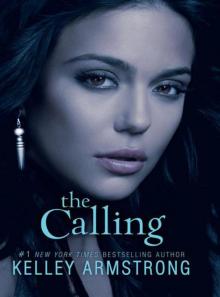 The Calling
The Calling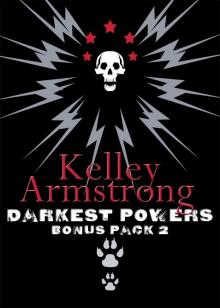 Darkest Powers Bonus Pack
Darkest Powers Bonus Pack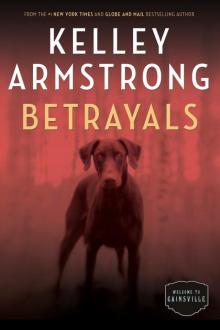 Betrayals
Betrayals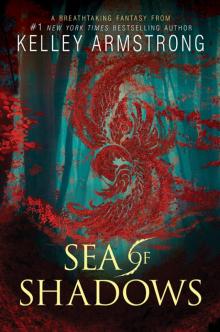 Sea of Shadows
Sea of Shadows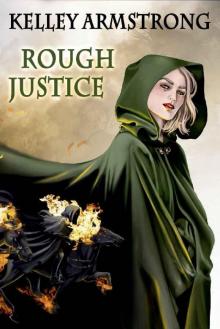 Rough Justice
Rough Justice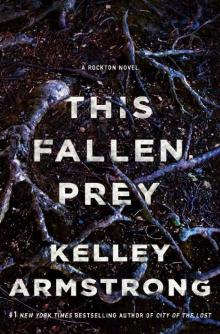 This Fallen Prey
This Fallen Prey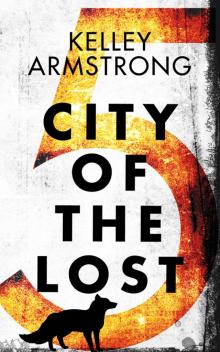 City of the Lost: Part Five
City of the Lost: Part Five Perfect Victim
Perfect Victim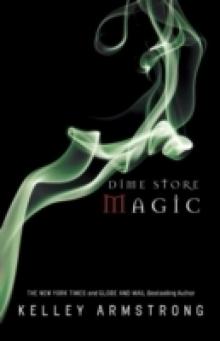 Dime Store Magic
Dime Store Magic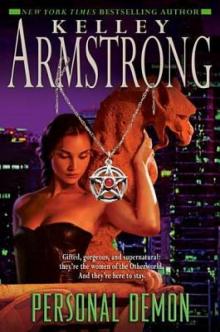 Personal Demon
Personal Demon Haunted
Haunted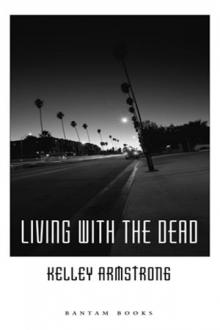 Living With the Dead
Living With the Dead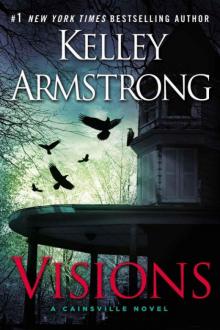 Visions
Visions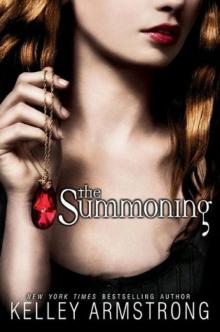 The Summoning
The Summoning Broken
Broken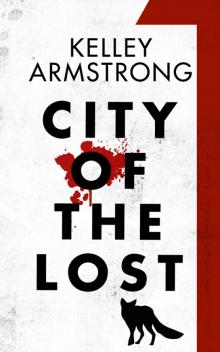 City of the Lost: Part One
City of the Lost: Part One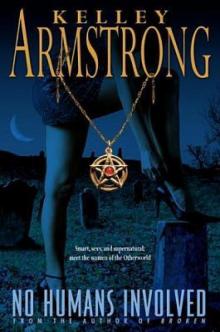 No Humans Involved
No Humans Involved The Awakening
The Awakening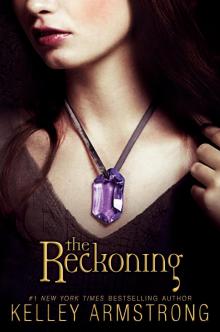 The Reckoning
The Reckoning The Gathering
The Gathering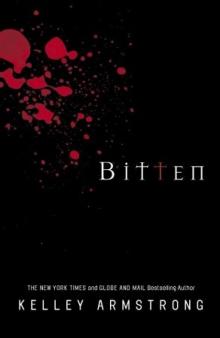 Bitten
Bitten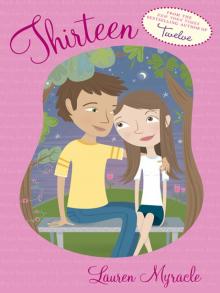 Thirteen
Thirteen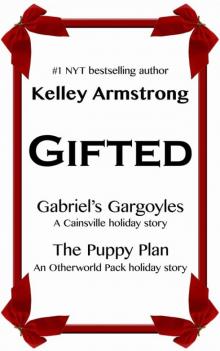 Gifted
Gifted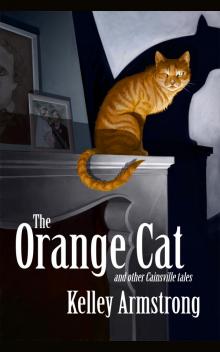 The Orange Cat and Other Cainsville Tales
The Orange Cat and Other Cainsville Tales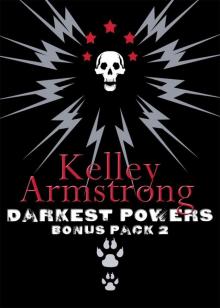 Darkest Powers Bonus Pack 2
Darkest Powers Bonus Pack 2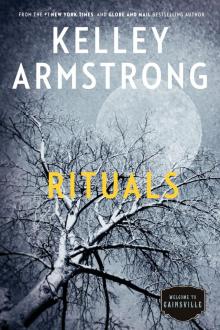 Rituals
Rituals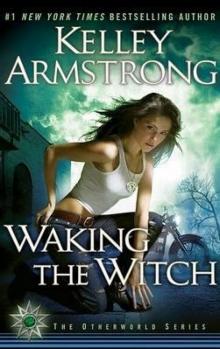 Waking the Witch
Waking the Witch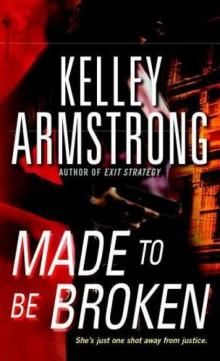 Made to Be Broken
Made to Be Broken Lost Souls
Lost Souls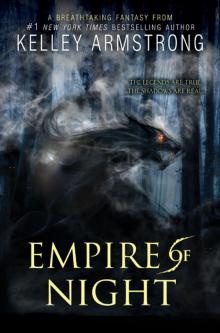 Empire of Night
Empire of Night Wild Justice
Wild Justice Double Play
Double Play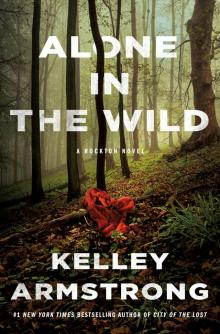 Alone in the Wild
Alone in the Wild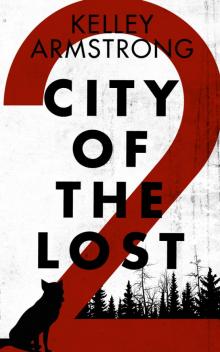 City of the Lost: Part Two
City of the Lost: Part Two A Stranger in Town
A Stranger in Town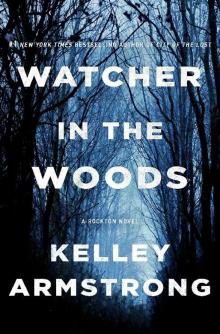 Watcher in the Woods: A Rockton Novel
Watcher in the Woods: A Rockton Novel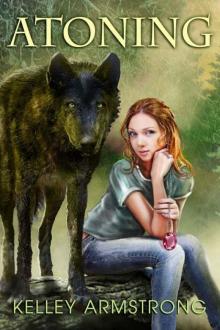 Atoning
Atoning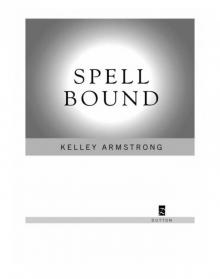 Spellbound
Spellbound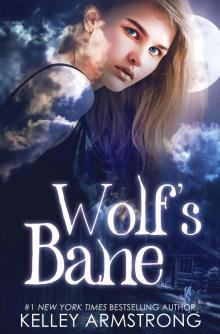 Wolf's Bane
Wolf's Bane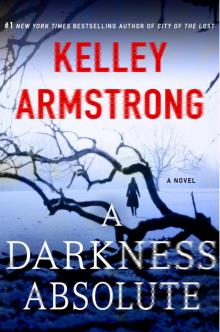 A Darkness Absolute
A Darkness Absolute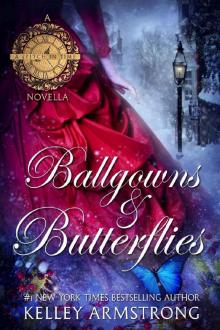 Ballgowns & Butterflies: A Stitch in Time Holiday Novella
Ballgowns & Butterflies: A Stitch in Time Holiday Novella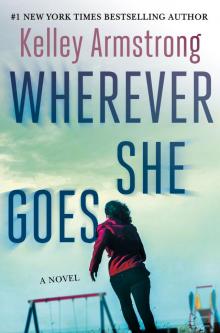 Wherever She Goes
Wherever She Goes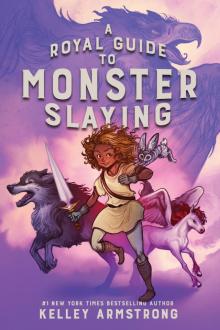 A Royal Guide to Monster Slaying
A Royal Guide to Monster Slaying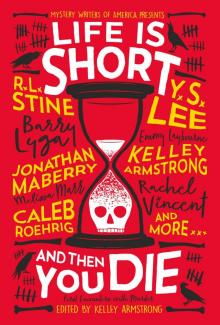 Life Is Short and Then You Die
Life Is Short and Then You Die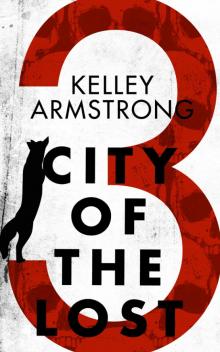 City of the Lost: Part Three
City of the Lost: Part Three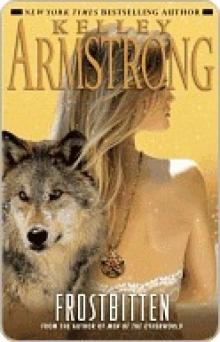 Frostbitten
Frostbitten A Stitch in Time
A Stitch in Time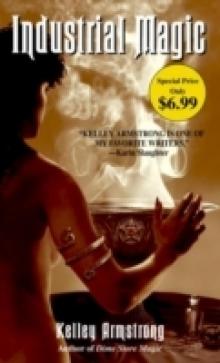 Industrial Magic
Industrial Magic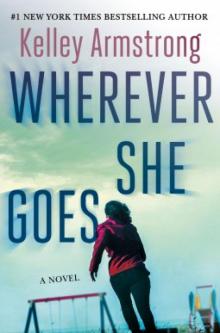 Wherever She Goes (ARC)
Wherever She Goes (ARC)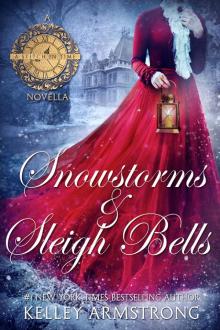 Snowstorms & Sleigh Bells: A Stitch in Time holiday novella
Snowstorms & Sleigh Bells: A Stitch in Time holiday novella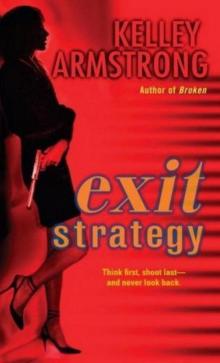 Exit Strategy
Exit Strategy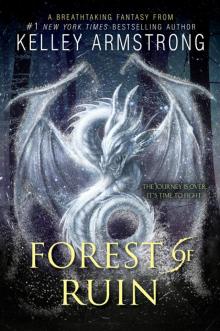 Forest of Ruin
Forest of Ruin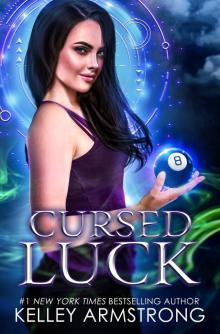 Cursed Luck, Book 1
Cursed Luck, Book 1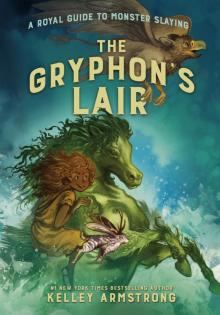 The Gryphon's Lair
The Gryphon's Lair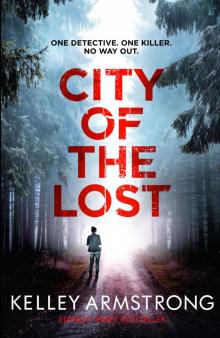 City of the Lost
City of the Lost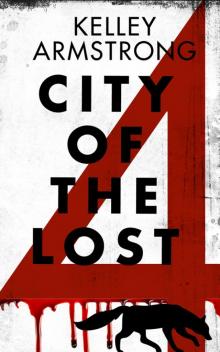 City of the Lost: Part Four
City of the Lost: Part Four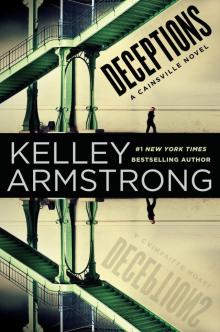 Deceptions
Deceptions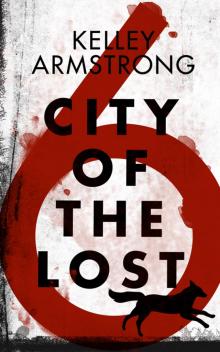 City of the Lost: Part Six
City of the Lost: Part Six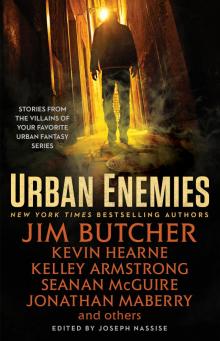 Urban Enemies
Urban Enemies Stolen
Stolen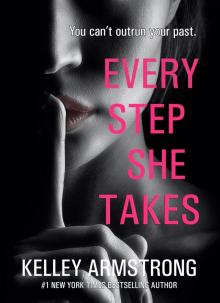 Every Step She Takes
Every Step She Takes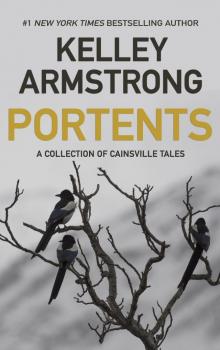 Portents
Portents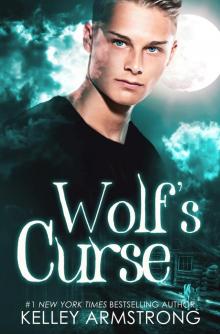 Wolf's Curse
Wolf's Curse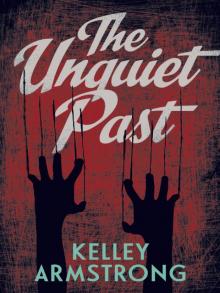 The Unquiet past
The Unquiet past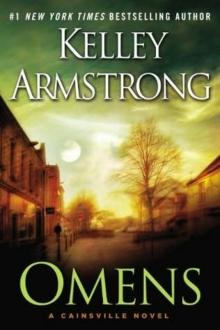 Omens ct-1
Omens ct-1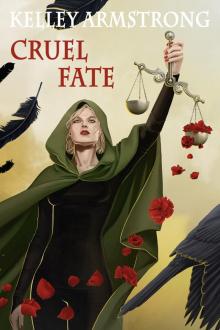 Cruel Fate
Cruel Fate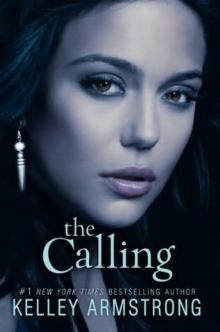 The Calling dr-2
The Calling dr-2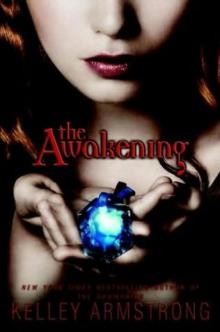 The Awakening dp-2
The Awakening dp-2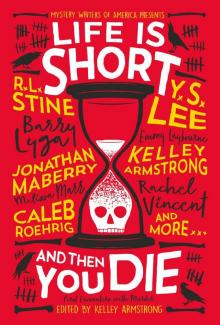 Life Is Short and Then You Die_First Encounters With Murder From Mystery Writers of America
Life Is Short and Then You Die_First Encounters With Murder From Mystery Writers of America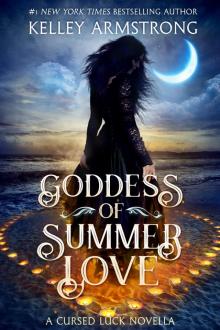 Goddess of Summer Love: a Cursed Luck novella
Goddess of Summer Love: a Cursed Luck novella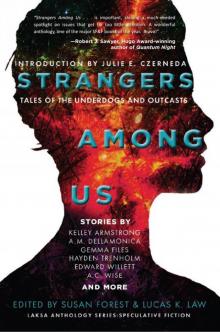 Strangers Among Us
Strangers Among Us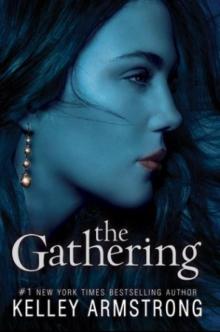 The Gathering dr-1
The Gathering dr-1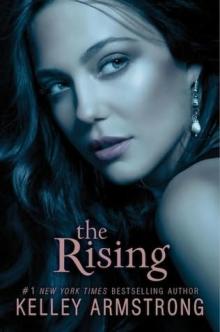 The Rising dr-3
The Rising dr-3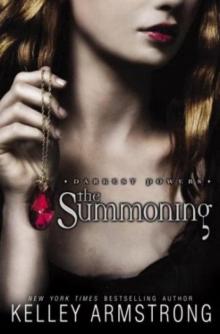 The Summoning dp-1
The Summoning dp-1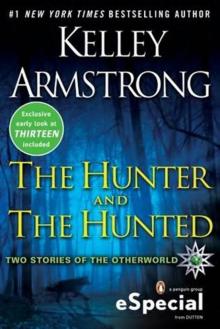 The Hunter And The Hunted
The Hunter And The Hunted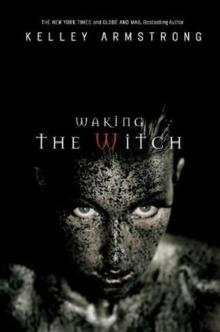 Waking the Witch woto-11
Waking the Witch woto-11